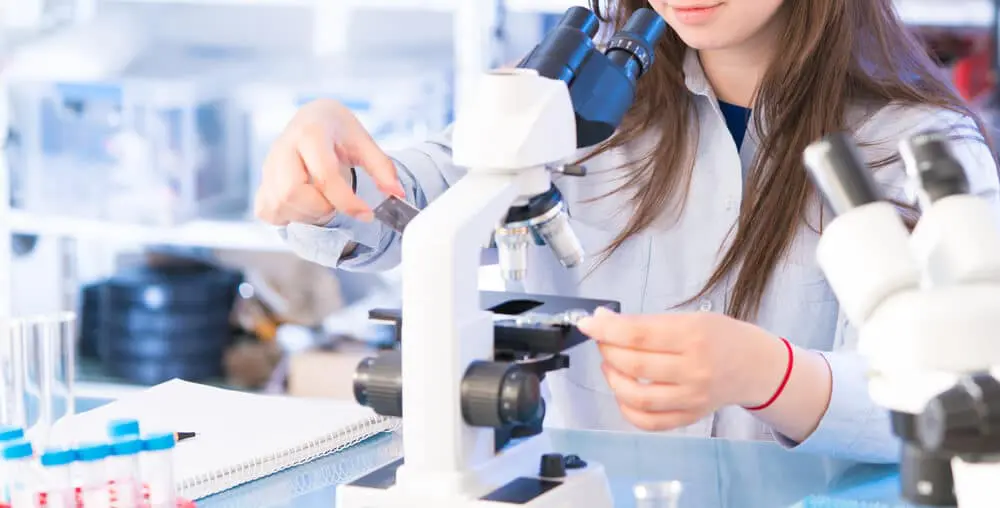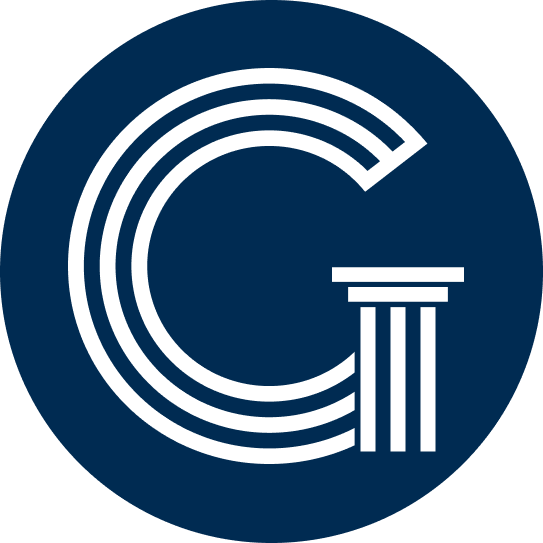10 Courses That Can Give Your Healthcare Education an Edge
Date: June 14, 2022
Deciding to continue your education is a big commitment. Taking a strategic approach to planning your future can go a long way in your vocation. Here’s a list of courses a student can take to help transition into a healthcare role. Often, familiarizing oneself with these classes can provide a leg up. Plan today about how you might fit one or two of these classes into your academic schedule this semester!

1. General Biology
Biology is the study of life, with the word “biology” derived from the Greek “bios” (life) and “logos” (study). Those who take biology learn about the structures, functions, growth, origins, evolutions, and distributions of living organisms.1 Yet, biology is not only the study of living things but also of their vital processes.2
An introductory biology course can teach students everything from cell structure to genetics. Frequently, biology is the starting point for physical sciences and covers general scientific concepts for most people. Taking biology early on allows one to learn foundational building blocks to build upon their education and add more advanced sciences later.
2. General Chemistry
Theodore William Richards once said of modern chemistry and medicine, “The particular branch of science called chemistry holds the key which alone can unlock the gate to fundamental knowledge of the hidden causes of health and disease.”3 Chemistry was once called “the handmaid of medicine” because our bodies are built up of chemical substances, and all living organisms depend on chemical reactions.3
An integral part of well-rounded healthcare education, a foundational chemistry course is where one may learn about the science of substances. Additionally, they will learn more about body health and biochemistry, which can later provide a base for general pharmaceutical knowledge.
3. Anatomy and Physiology
While human anatomy covers internal structures, physiology concerns how those structures work as systems and integrate within the body. An imaging scan like an X-ray or ultrasound can show anatomical planes. At the same time, urine and blood tests or electrocardiograms (EKGs)—reveal details about different organ systems, aka physiology.4
It’s not hard to see why learning anatomy fundamentals is essential to one’s healthcare education and how building a solid vocabulary base in this often proves helpful in advanced subjects.
While learning about physiology, one may learn everything from digestive processes to mechanical muscular mechanisms. As related to healthcare, a study of physiology can prove helpful in understanding how the body functions under optimal conditions and what happens to it when disease or injury occurs.
4. Physics
Physics courses introduce critical concepts such as the principles of force, pressure, and volume, which can help one understand how these forces then work within the human body. These theoretical concepts are crucial for those with educational trajectories, including using large machines such as X-ray technology or Medical Resonance Imaging (MRIs). Fundamental physics should provide a glimpse into how imaging instruments work and operate and an overview of how they are used in the human body.
5. Intermediate Algebra
Algebra as a discipline fosters reasoning and critical thinking. Learning algebra can be helpful to would-be healthcare individuals because, beyond numbers and letters, algebra teaches one how to think critically. Mathematicians and technicians primarily operate by noticing patterns, categorizing items, estimating, recognizing differences versus similarities, and detecting changes and abnormalities in patterns.5
Future professionals should fully understand the shape and size of molecules, and cells, for work with machines such as pacemakers, ultrasound equipment, and more. Medical doctors may need to calculate chemicals with numerical bases and know their interactions with other chemicals and medications that interfere with one another. Many advanced educational pathways require calculus and trigonometry, and algebra provides the gateway prerequisite to higher mathematics.
6. Psychology
The most significant part of healthcare is working with patients. As a healthcare professional, one should have a bit of skill in handling people. Discover the psychology behind why people go to the doctor and how the brain can affect symptoms of other diseases. Furthermore, know why behaviors play vital roles in survival, long- and short-term health, and emotional and physical well-being.6
Knowing how patients deal with chronic disease or why hostility, depression, and stress play significant roles in the progression of many chronic diseases.7 This course, paired with psychiatry, can help prepare one for a better bedside manner or more advanced classes in neuroscience or other brain-specific studies.
7. Sociology
Sociology is the study of people and societies. Sociology can provide healthcare professionals with better insights into the people they’ll serve. According to a post in Nursing Times, “Sociological knowledge also allows nurses to enhance the quality of patient care. Understanding individual patients’ social context can provide significant insight into how one’s patients experience the world, particularly their experience of health and care.
The application of sociology allows nurses to reflect on their actions toward patients from different social backgrounds (McPherson, 2008), considering what is important to them and trying to see the world from their perspectives.”8

8. Ethics
According to the Vermont Ethics Network, an organization advancing ethics, “Medical ethics” or “bioethics,” in its simplest form, is a set of moral principles, beliefs, and values that guide us in making choices regarding medical care. At the core of healthcare, ethics is our sense of right and wrong and our beliefs about rights we possess and duties we owe others.”9
Doctors and nurses face dilemmas in their work, from client/patient confidentiality to new technologies, illuminating the need for ethics. Ethical questions arise every day. Understanding different theories can also provide professionals perspectives on decision-making processes and roadmaps for making wise choices.
9. Statistics
You might wonder how statistics can help in a healthcare career. “By identifying statistical trends and trails, healthcare providers can monitor local conditions and compare them to state, national, and international trends,” says two National Library of Medicine authors, Barbara Bartkowiak and Brian Finnegan. “Health statistics provide empirical data to assist in allocating public and private funds and help determine how research efforts should be focused.”10
Professionals should know how to read statistics and detect inconsistencies within them. A statistical course can help one understand medical research, sort through data, and gain the know-how to present findings accurately for the betterment of patients, teams, and themselves.
10. Microbiology with Lab
According to the Encyclopedia Britannica, “Microbiology is the study of microorganisms, or microbes, a diverse group of generally minute simple life-forms that include bacteria, archaea, algae, fungi, protozoa, and viruses. This field is concerned with such organisms’ structure, function, and classifications. It is also focused on ways of exploiting and controlling their activities.”11 Knowing microbiology is imperative for understanding how bacteria and viruses interact with the body and its systems. Microbiology didactic classes with lab work only reinforce and add to one’s base knowledge. Simultaneously, students gain exposure to working in a laboratory, a staple of healthcare educational programs.
Next Steps
Preparing to go into an allied-healthcare program can take a lot of planning. Include a few of these classes as you develop your initial course schedule. Doing so can make transferring to a healthcare program like Gurnick Academy more beneficial. Gurnick Academy strives to support student success. Our institution offers quality education with clinical practice, advanced equipment, and internships that provide students with experience in their fields.
We are ABHES accredited and offer financial aid to students who qualify. Contact our admissions office to see what you may be eligible for, what courses we offer, and how to apply today.~
Citations:
1 Bagley, Mary. “What Is Biology?” Live Science, Live Science. Aug. 10, 2017. (Accessed May 2, 2022.)
2 Rogers, Kara, Green, Edna R. and Joshi, Susan Heyner. “Biology.” Encyclopedia Britannica. Nov. 25, 2019. (Accessed May 2, 2022.)
3 ^ a, b, c Richards, Theodore William. “Modern Chemistry and Medicine.” The Atlantic, The Atlantic Monthly Group, Jan. 1, 1909. (Accessed May 2, 2022.)
4 Willaims, Sarah C. P., and Khatri Minesh, MD. “What Is Physiology?” WebMD, WebMD LLC., 28 July 2021. (Accessed May 2, 2022.)
5 National Center for O*NET Development. Radiologic Technologists and Technicians. O*NET OnLine. (Accessed Sept. 2021.)
6 Krantz D.S., McCeney M.K. “Effects of Psychological and Social Factors on Organic Disease.” Annual Review of Psychology. (Accessed Sept. 2021.)
7 National Institutes of Health (US); Biological Sciences Curriculum Study. NIH Curriculum Supplement Series. Bethesda (MD): National Institutes of Health (US); 2007. (Accessed Sept. 2021.)
8 Contributor, N. T. “Sociology in Nursing 1: Can Sociology Help Improve Nursing Practice?” Nursing Times. EMAP Publishing Limited. Oct. 5, 2015. (Accessed May 2, 2022.)
9 Vermont Ethics Network. “Overview of Medical Ethics.” Vtethicsnetwork.org, VT Ethics. 2018. (Accessed May 2, 2022.)
10 Bartkowiak, Barbara A., and Brian J. Finnegan. “Health Statistics.” Clinical Medicine and Research, Vol. 2, No. 3, PP 189–190. Aug. 1, 2004. (Accessed May 2, 2022.)
11 Pelczar, Michael J. and Pelczar, Rita M. “microbiology.” Encyclopedia Britannica. Dec. 4, 2020. (Accessed May 2, 2022.)





